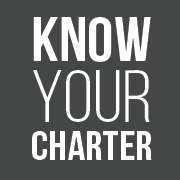
KYC Release: Veracity Of Ohio Charter Grant Application Questioned
COLUMBUS – Ohio’s superintendent of public instruction, Dr. Richard Ross, may have broken the law when he signed a grant application seeking federal charter school money and vowed that its contents were “true, complete and accurate.”
An analysis of Ohio’s application to the U.S. Department of Education done for the Ohio Charter School Accountability Project by Innovation Ohio Education Fellow Steve Dyer shows some parts to be false and misleading.
The new analysis, coupled with recently released public records, underscore the need for an independent investigation into data scrubbing at the Ohio Department of Education.
The decision by the U.S. Department of Education to give Ohio a $71 million grant to expand charter schools even though it ranks near the bottom nationally for charter-school academic performance and has a history of financial failures and lax oversight has prompted bi-partisan concerns.
Among the application’s bigger whoppers:
- “Closure laws differ slightly based on grade levels offered by a school, but essentially a school is forced to close under ORC 3314.35 when it has ratings of “D” or “F” in two of three consecutive years, and fails to meet expected value-added expected gains.”
The Ohio Revised Code provides for closure of charter schools only if they receive Fs in 2 of 3 years for either proficiency or student growth.There is no sanction for getting Ds. Hansen makes this claim later on page 30 of the application.
- The Ohio Department of Education “holds authorizers accountable for performing and reporting … and evaluates authorizer performance in the areas of: agency commitment and capacity; application process and decision-making; performance contracting; oversight and evaluation; termination and renewal decision-making; and technical assistance.”
The department’s glowing assessment of its oversight and accountability comes after the National Association of Charter School Authorizers called Ohio “the Wild, Wild West” of charter authorizers.
- Ohio has a “new law instituting a first in the nation, high stakes quality reviews of all state authorizers.”
This claim appears in the application’s cover letter. According to the National Association of Charter School Authorizers, Minnesota, Missouri, Michigan and Indiana all have sanctions for poor performing authorizers.
- “Today, Ohio’s charter schools are measured as “effective” or “ineffective” per the State’s grading system which, like the federal definition of high-quality schools, incorporates several measures of school success.”
There is, in fact, no such “effective” or “ineffective” designation on Ohio’s report card for charter schools. Charter schools, like Ohio’s local public schools, receive A-F grades on nine different measures.
Ohio’s grant application was prepared by the state’s director of school choice, David Hansen, who resigned after it was revealed that he had manipulated the data for evaluating charter school sponsors. Hansen and his team attempted to rig the ratings to mask the poor performance of online charter schools.
ODE spokesperson Kim Norris told reporters that Ohio informed the federal government that it had rescinded the sponsor evaluations Hansen had doctored.However, that information is not reflected in the review of Ohio’s application where the state received a perfect score on the accountability section.
LINKS:
- KYC Analysis: Problems with Ohio’s Charter School Program Application to the U.S. Department of Education
- Ohio Charter Grant Application
- Washington Post: Ohio Congressman questions Arne Duncan’s $32 million charter grant
|
-30-
Media Contacts:
Michele Prater, Ohio Education Association – 614-227-3071
Keary McCarthy, Innovation Ohio – 614-425-9163
Sandy Theis, ProgressOhio – 614-940-0131
|
